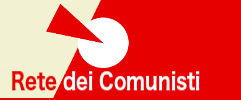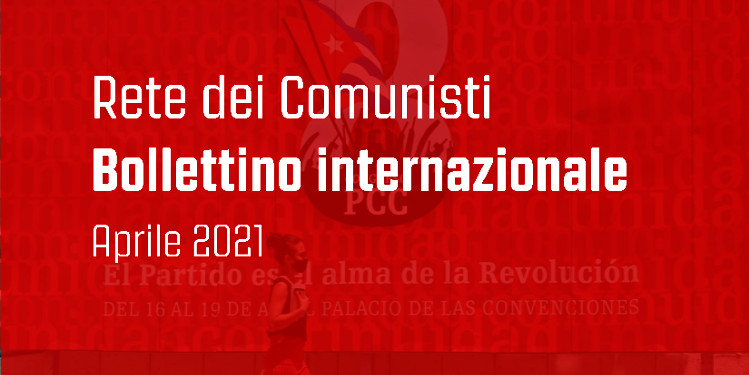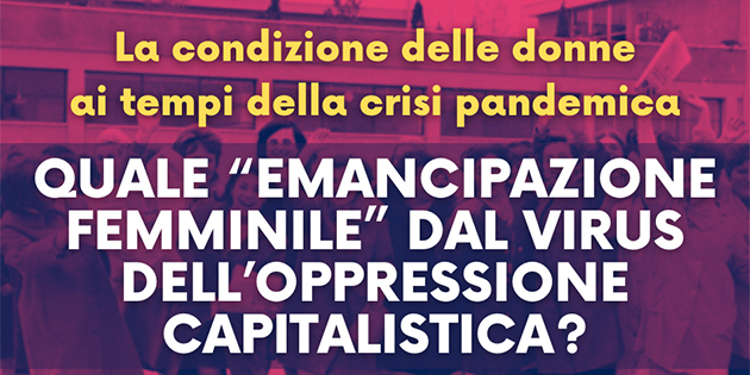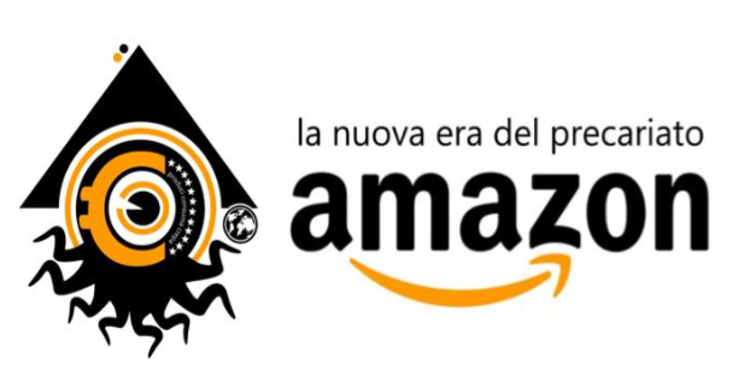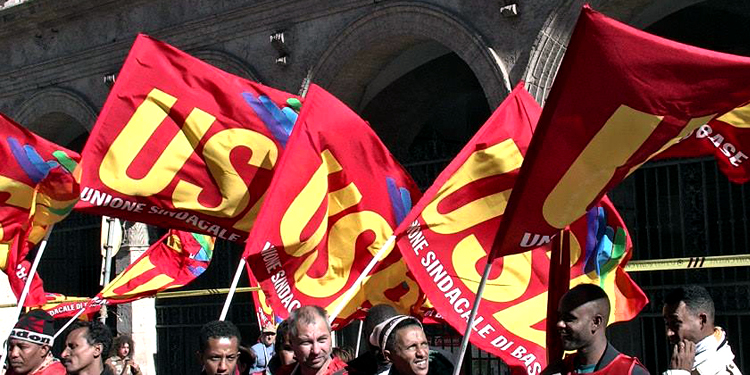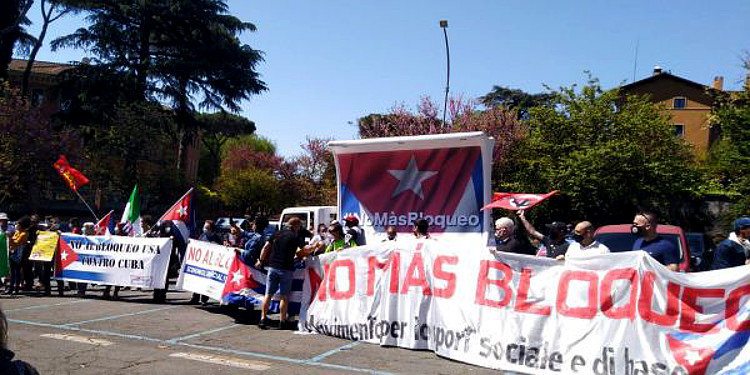| english | español | français | italiano |
Editorial of March 24, Contropiano.org
Let’s consider Italy’s “Euro-Atlantic positioning” seriously – as is obligatory – as Mario Draghi reiterated clearly.
What does this mean in concrete terms? That as far as strategic geopolitics and political- military alliances are concerned, this unfortunate country remains exactly in the position it has been in since 1945, that is, in conditions of limited sovereignty under the “NATO umbrella”. An alliance so to speak, in which Italy counts almost nothing.
As far as budgetary policies, economic policies, labour legislation, health and welfare in general are concerned, this unfortunate country is part of the European Union and is bound by the treaties that govern it. Treaties designed to always favour “the market” to the detriment of the people, as commanded by the export-oriented model imposed from the beginning by the economies of the North (Germany, out of the teeth).
A double cage that is in fact particularly constrictive and socially harmful, given that it prevents – both institutions, NATO and the EU, were born for this – any possible evolution towards models of social organisation based on other priorities and other social, as well as geopolitical, interests
But in what condition is this double external constraint in today, at the height of the pandemic?
Very bad, it seems. Which is a serious problem, given that no imperialism in crisis gives up hegemony without first trying everything to stay on the throne. But, on the other hand, if it were always at the height of its powers, there would never even be a hope of glimpsing the possibility of radical change.
The pandemic, in this Euro-Atlantic bloc, has been dealt with in much the same way.
a) “Living with the virus” to keep as many economic activities open as possible, sacrificing the “marginal and non-strategic” ones (tourism, catering, hotels, leisure, culture, entertainment, etc.) in order not to lose too many points in the core ones (steel, mechanics, IT, telecommunications, etc.).
b) waiting for vaccines, financing research with public money but entrusting it to private multinationals that could thus impose patents to be ‘protected’.
c) then conduct mass vaccination campaigns, hoping to achieve herd immunity as soon as possible and resume ‘normal life’.
The failure in this field is complete.
The economy has also collapsed by several points, in all the countries of this Euro-Atlantic bloc. The privatised health service is everywhere an organisational and proprietary obstacle to mass vaccination campaigns (after having been so in the prevention and initial fight against the virus).
The ‘authorised’ vaccines – so far only four within the ‘bloc’ – have been selected on a ‘geopolitical’ basis, excluding from the outset the ‘exogenous’ ones (Russian, Chinese, Cuban)
This is not the end of the story. The fierce competition between the Big Pharma multinationals themselves is very much in evidence, with the three American ones (Pfizer, Moderna, Johnson & Johnson) aiming to destroy the credibility of the Anglo-Swedish AstraZeneca (which, for its part, is doing so much that it seems suicidal).
In short, the Atlantic and the ‘euro’ sides are not going in the same direction, despite Draghi’s reassurances.
Moreover, research on the virus is registering new characteristics and variants on a daily basis, to the point that its endemicisation seems certain. The mutant Covid is on its way to becoming as cyclical as an annual flu. But it sows ten times as many deaths as the dear old flu.
Imagine “competitive” capitalist economies facing every year the hellish purgatory we have been experiencing for over a year now, and ask yourself how long it can last before ruptures – in economic structure or social resilience – begin to manifest themselves in earnest
In such a situation, the new ‘democratic’ US administration has coldly chosen to raise the level of ‘strategic confrontation’ with Russia and China, treated as potential enemies simply because they exist independently of the Euro-Atlantic bloc. In fact, they have two different social systems (Russia does not deviate much from the Western neo-liberal model, while China shows a ‘mixed public-private model’ oriented by state planning), and therefore this is not an ‘ideological’ opposition (‘liberal freedoms’ versus ‘communist dictatorships’).
It can also be seen from the ‘narrative’ offered unequivocally by the entire mainstream media system, which desperately clings to a few relatively problematic pieces (Navalnyi, the Uighurs, Hong Kong), while trying to silence as much as possible the successes (the increase in wages and welfare in China, with the elimination of poverty; the defeat of the virus and 17 vaccines in the field, distributed in the rest of the world).
We are inside a bloc in crisis, that is the simple truth. Competition is also increasing within the “Euro-Atlantic bloc” (between the United States and the European Union, with threats to Germany over the Russian gas pipeline plus other “trifles” in the automotive or aerospace sectors).
But it is also increasing within the European Union, with the Recovery Fund in charge of rewriting the division of labour and industrial supply chains within the Old Continent. Here Germany and France are aiming to take the lion’s share (more the former, of course), only temporarily setting aside the “end of the world” weapon, namely a return to austerity and a balanced budget.
Is there any hope of getting out of this deadly situation? Yes, if we acknowledge that this is the real situation. Yes, if we listen to the discontent growing within the various social figures we use to call ‘popular’.
Economy Minister Daniele Franco has already explained that the “measures to support the economy” – and workers and small businesses – “will gradually run out by the end of the year”. The little bit of financial morphine that has so far prevented the full intensity of the social pain from being felt will soon disappear.
Then this endless stalemate will also expire.
